
Guides
Discover the stories behind these 16 Liverpool statues
6 years ago
We often walk past and don’t stop to think, what is the story behind the stone?
They’re dotted all over the city, and it’s very easy to just walk straight past them, but do you know the stories behind these Liverpool statues?
Johnnie Walker – Pier Head
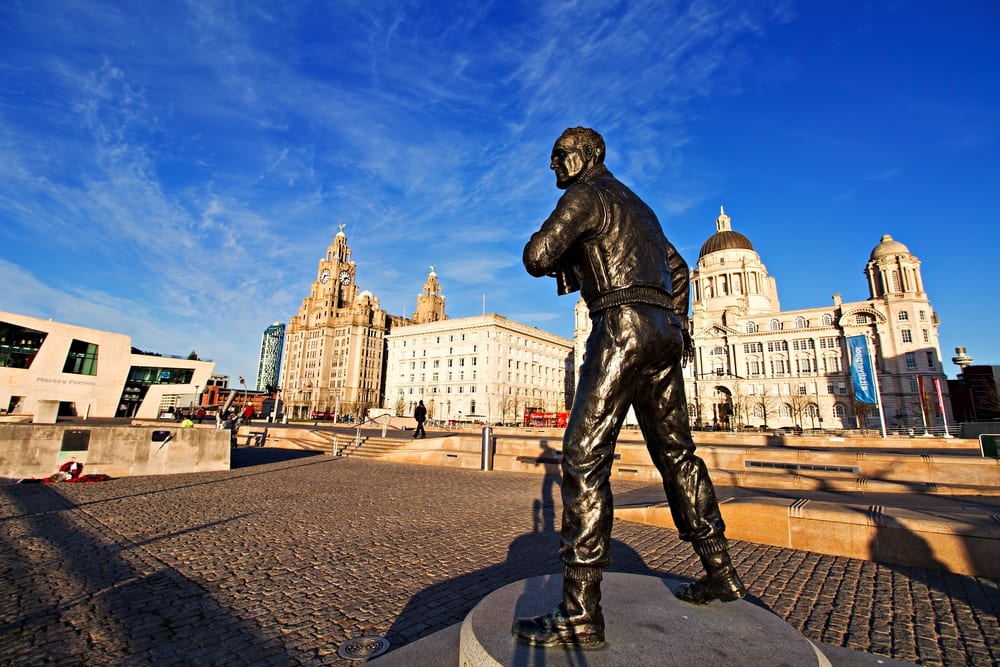
Captain Frederick ‘Johnnie’ Walker looks out to sea in commemoration of his role in the Battle of the Atlantic. Walker took control of Naval Escort Groups based in Liverpool and received the Distinguished Service Order in 1942 before sinking five enemy ships in 1943.
Walker’s last task was to protect his fleet during the D-Day invasion of France, which he did with incredible ability – all enemy ships were destroyed and none penetrated his vessels. A thousand people attended his funeral at Liverpool Anglican Cathedral.
The Beatles – Pier Head
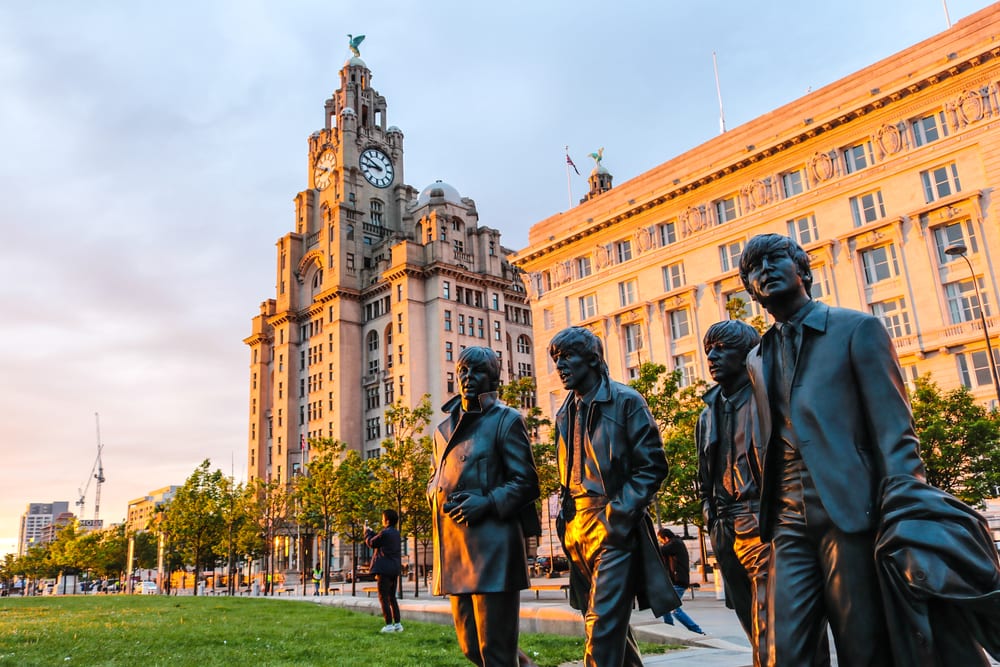
The city’s newest tribute to The Fab Four by Andy Edwards was unveiled by John’s sister, Julia, and deputy mayor Cllr Ann O’Byrne in 2015, marking the 50th anniversary of The Beatles’ last gig in the city at the Liverpool Empire in December 1965.
Each statue is personified by small details – Paul carries a camera in tribute to his marriage to photographer Linda Eastman of the Kodak family. Sanskrit writing on George’s belt reflects his Spiritual beliefs. The sole of Ringo’s boots shows an 8 – referencing his former L8 address and name of his 2008 album, while John holds two acorns cast from outside the Dakota Building where he resided with Yoko in New York.
Billy Fury – Royal Albert Dock
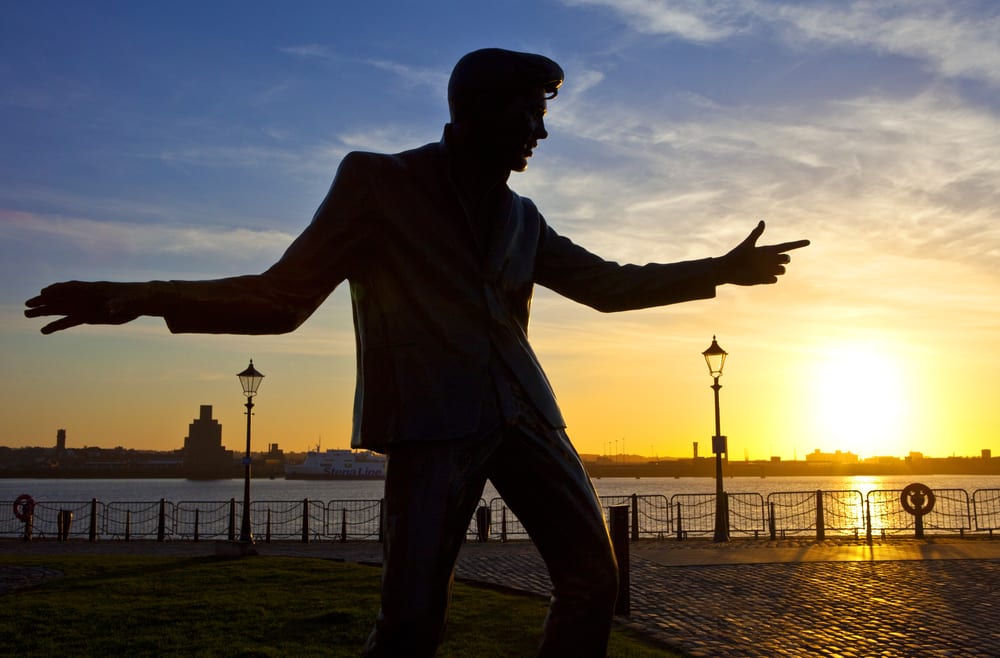
Born in The Dingle, former docker and Teen sensation Billy Fury scored eleven Top Ten hits with sales of his singles equal to Elvis and The Beatles, including Halfway to Paradise, Jealousy and It’s Only Make Believe.
Heart problems compromised Billy’s promising career and led to him passing aged 42, but he is commemorated by this commission by The Sound of Fury Fan club which overlooks the River Mersey.
John Lennon – Mathew Street
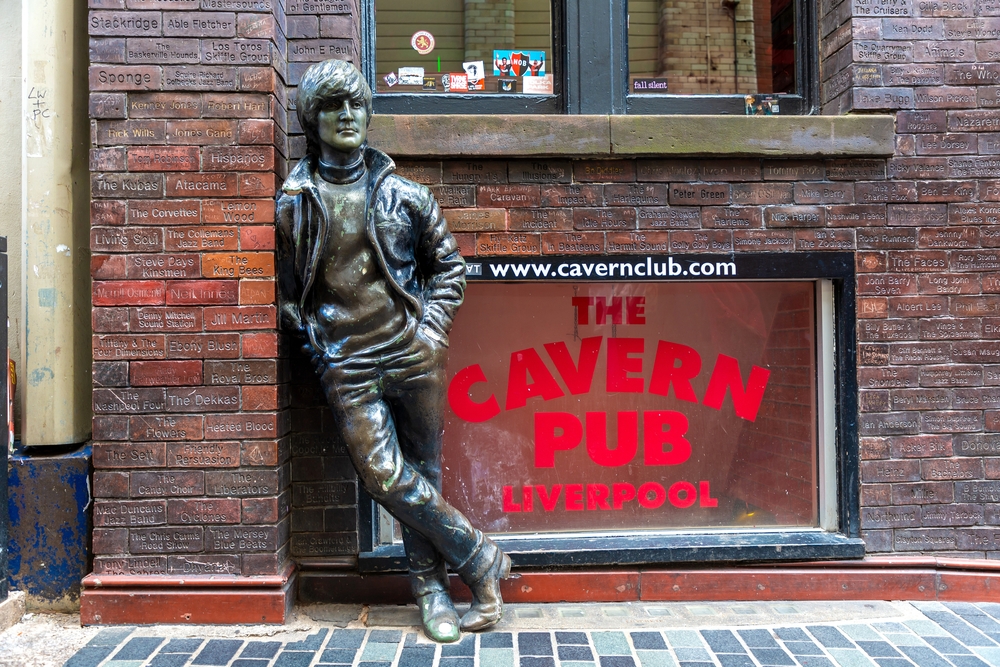
A huge draw for tourists on The Beatles’ trail, depicted leaning against the Wall of Fame, John casually stands in a leather jacket and jeans in this statue by Arthur Dooley, based on the cover of Lennon’s 1975 solo album, Rock ’n’ Roll which featured covers of famous 50s tracks including Be-Bop-A-Lula, Stand By Me and Peggy Sue.
Cilla Black – Mathew Street
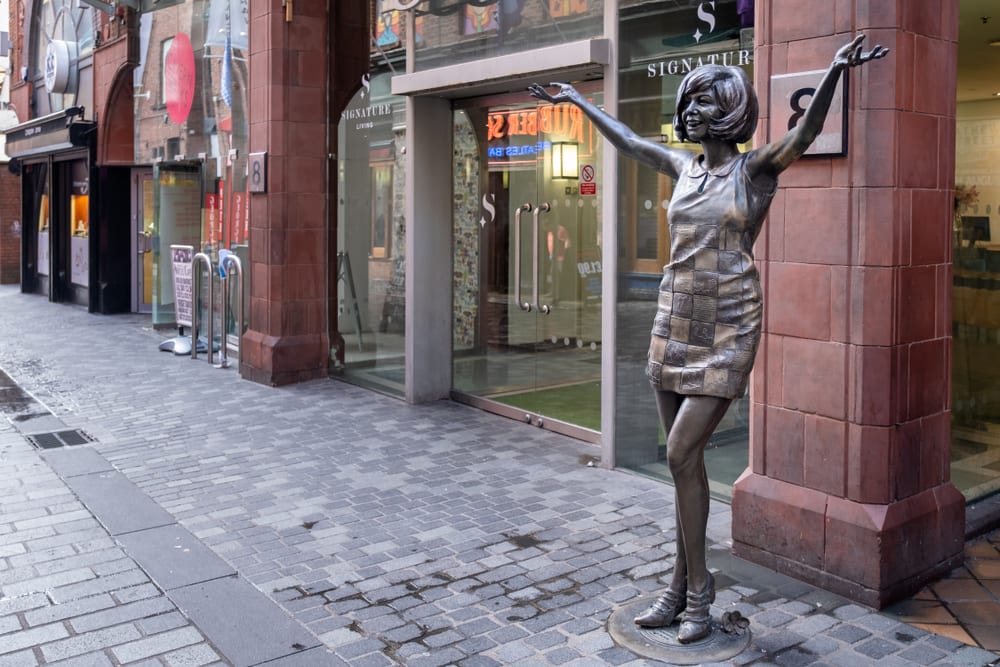
Unveiled in 2017, Cilla greets visitors in a life-size bronze by Emma Rodgers, who worked in collaboration with Andy Edwards, creator of The Beatles on the Liverpool Waterfront.
The work was commissioned by Cilla’s three sons to commemorate her beginnings as a cloakroom girl at The Cavern before becoming a number one solo artist in the 60s and household name with a TV career including Blind Date and Surprise, Surprise in the 80s.
Eleanor Rigby – Stanley Street
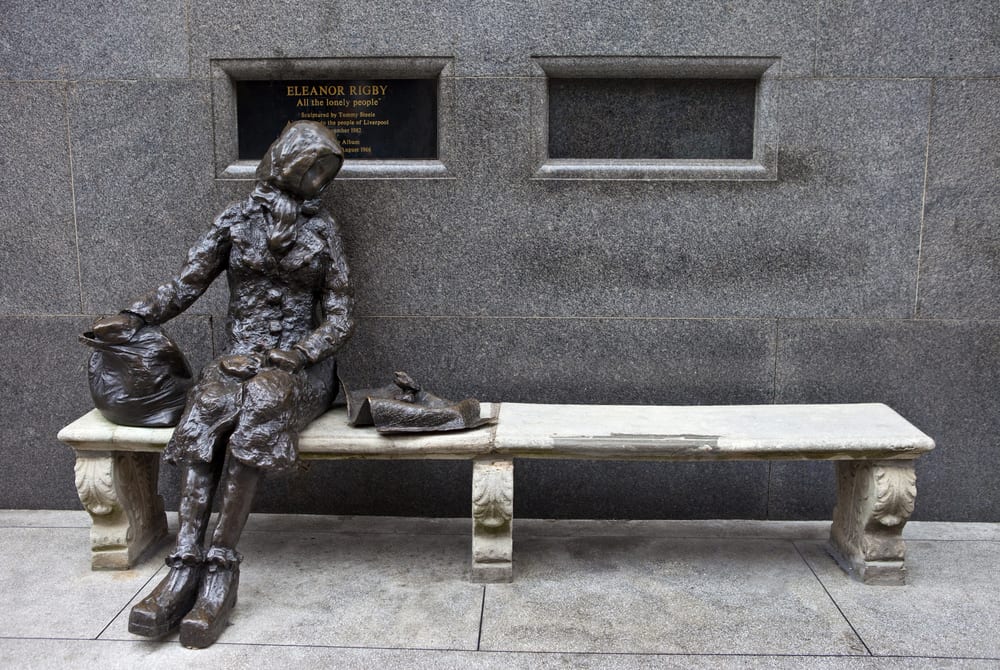
Eleanor Rigby stayed at Nº1 for 4 weeks in 1966, but whether Paul McCartney based the woman in the song on her namesake at St Peter’s Churchyard still remains a mystery.
Never-the-less, entertainer Tommy Steele designed and unveiled the statue in 1982 and despite being dedicated to ‘All the Lonely People’, our Eleanor remains of one Liverpool’s most popular residents with tourists and passersby taking a seat for selfies.
Ken Dodd & Bessie Braddock – Lime Street Station
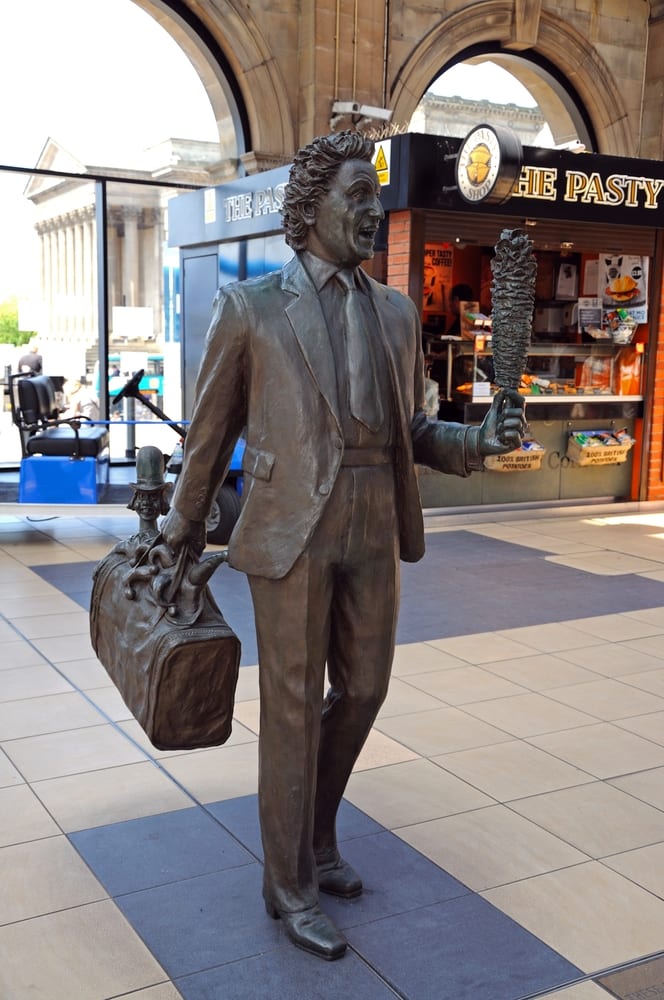
This pairing by prolific Lancashire sculptor Tom Murphy is called A Chance Meeting.
Loved by audiences for decades, Doddy was a Knotty Ash resident along with his fictious Diddy Men throughout his career as a music hall entertainer and comedian. The bronze statue which he unveiled himself in 2009 now keeps train passengers tickled.
Socialist MP Bessie Braddock tirelessly campaigned to improve living conditions on behalf of the city’s under-privileged and is shown holding an egg – as Bessie is responsible for the Lion Quality Mark on eggs which was reintroduced in 1998.
All Together Now – St Luke’s (Bombed Out) Church
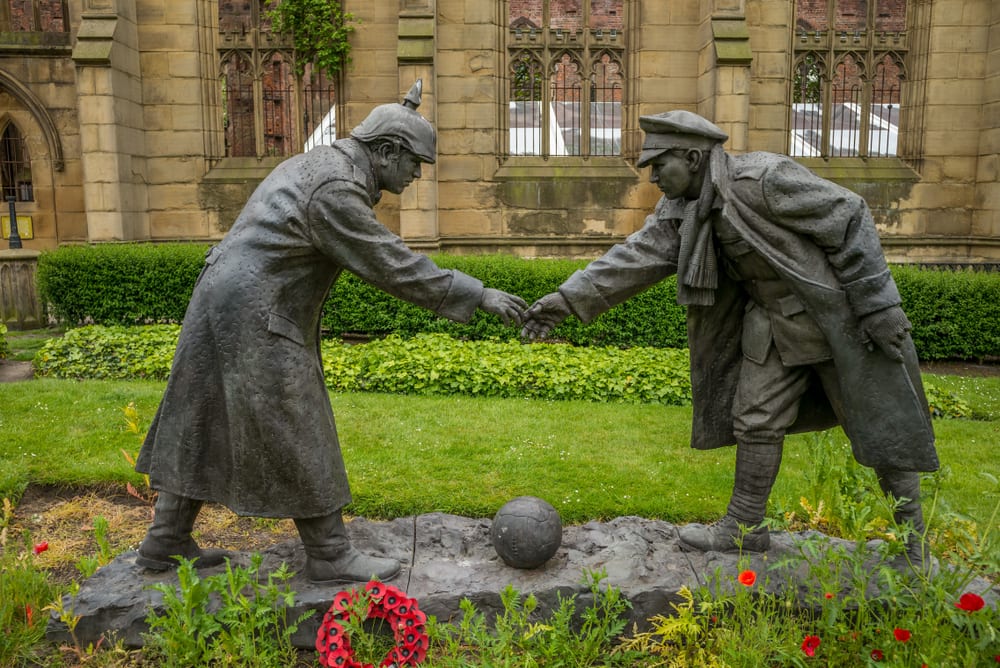
Ok, so not literally depicting a Scouser but the work was inspired by The Farm’s anthem All Together Now – written about the 1914 Christmas Day truce of WW1. The statue was unveiled the same day as the single was re-released by The Peace Collective.
Raising funds for The British Red Cross The Peace Collective featured a backing choir of schoolboy footballers from the Premier League and German Bundesliga and stars including Clean Bandit, Gabrielle, Alexandra Burke, Julian Lennon, David Gray, Mick Jones (The Clash) and Massive Attack’s Shara Nelson.
Kitty Wilkinson – St. George’s Hall
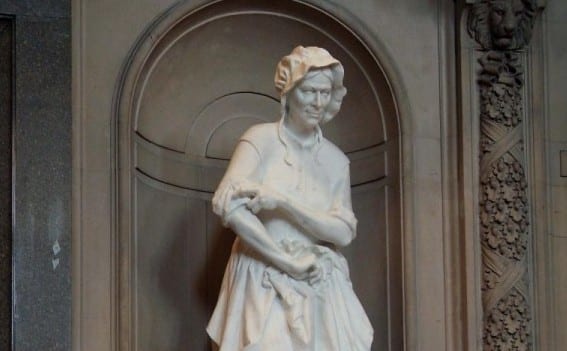
In 2012, a marble statue by Simon Smith was unveiled of the Irish inventor of the public washhouse inside St. George’s Hall. Kitty became known as The Saint of the Slums during the 1830s as she had the only boiler in the neighbourhood and saved many lives by sharing it to wash infected clothes and linens.
A decade later brought the opening of the first washhouse and public baths in the country, with Kitty demonstrating how to disinfect items.
Red Rum – Aintree Racecourse
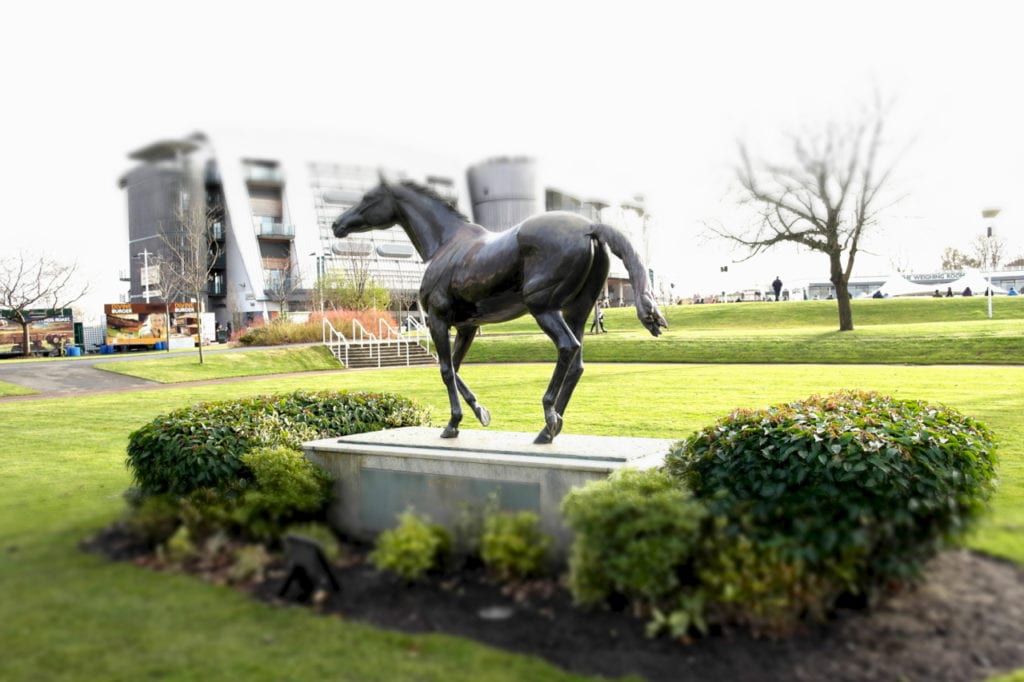
Three times Aintree winner in 1973, 1974 and 1977, Red Rum has this statue and another in his hometown of Southport, where he trained on sands and in sea water. His unmatched record makes him captured the affection of the public like no other race horse, and when Red Rum passed in1995 aged 30 it made national news.
Buried at the winning post at Aintree Racecourse his epitaph reads: Respect this place, this hallowed ground, a legend here, his rest has found, his feet would fly, our spirits soar, he earned our love for evermore.
Noel Chavasse VC – Liverpool University Campus
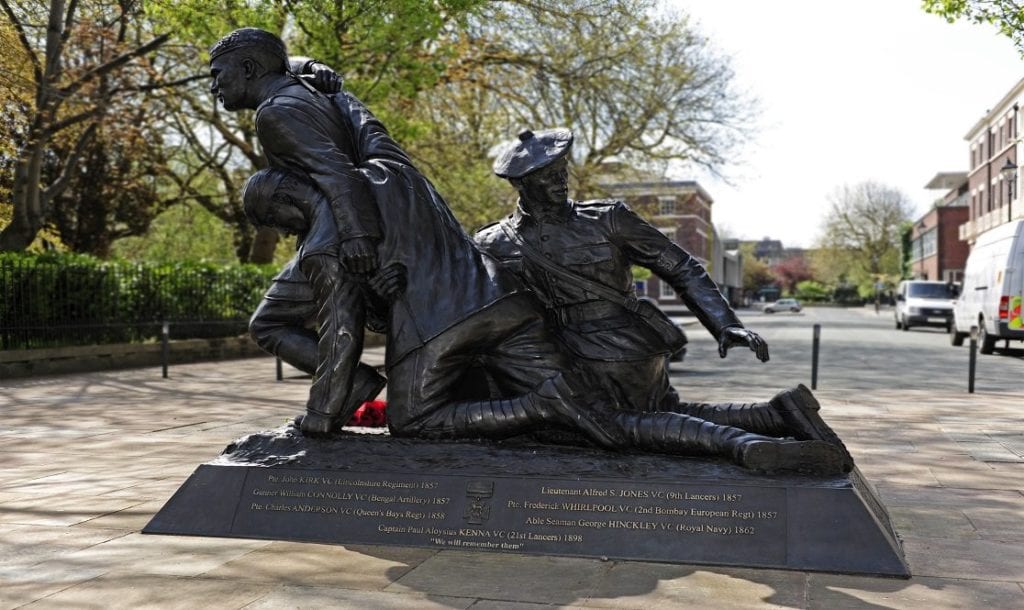
Located in Abercromby Square, the most highly decorated British officer in WW1, Captain Noel Chavasse from Kings Liverpool Regiment is one of only three people honoured with the military’s highest award for honour, the Victoria Cross – twice.
Chavasse Park at Liverpool ONE is named after the Chavasse family. Noel’s father was Bishop of Liverpool Francis Chavasse and his twin brother was decorated solider and Olympic athlete Christopher Maude Chavasse OBE who became Bishop of Rochester.
Sir Arthur Bower Forwood – St Johns Gardens
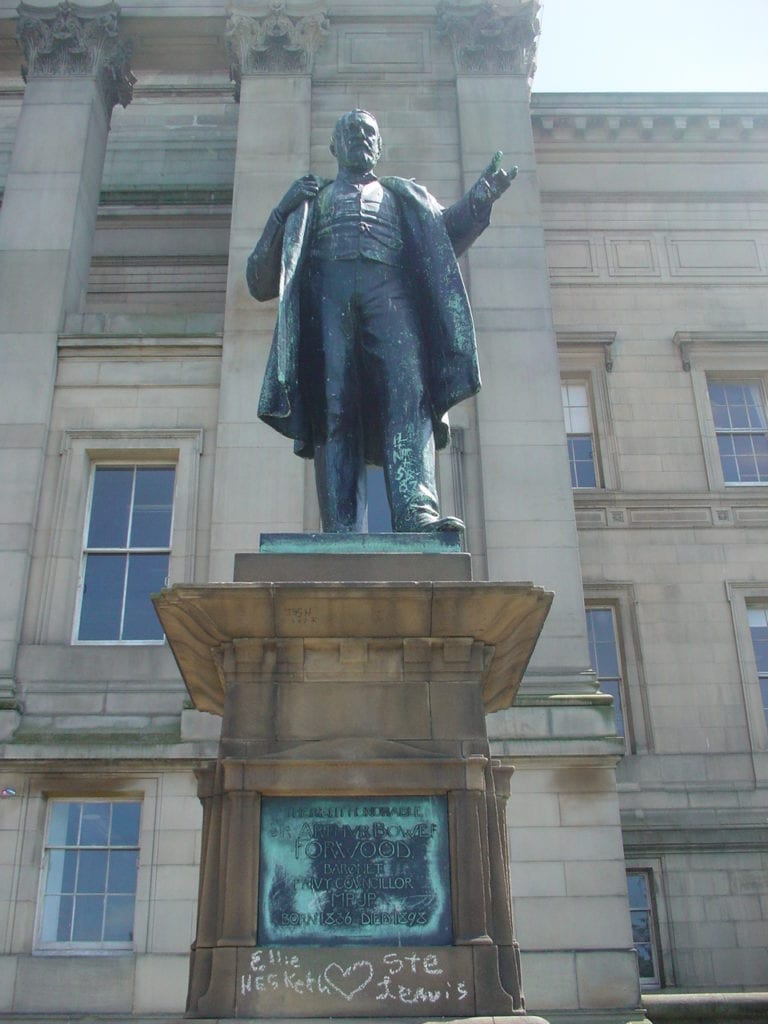
The former Lord Mayor of Liverpool was born in 1836 in Edge Hill, and served as a Conservative MP from 1885 and was a strong advocate of universal suffrage.
A senior partner in shipping lines based in Liverpool, London and New York, Sir Arthur Bower Forwood expanded into Central America and the West Indies, gaining a reputation for enterprise which made him President of the city’s Chamber of Commerce.
Monsignor James Nugent – St Johns Gardens
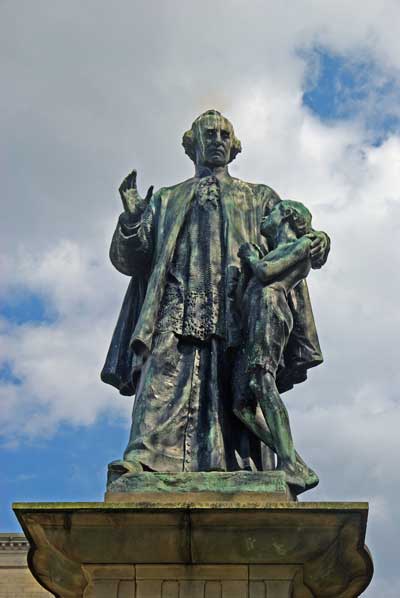
Archdiocese of Liverpool, James Nugent is the name behind Nugent Care, who worked on behalf of child welfare, poverty relief and social reform. In 1850 he opened a school on Rodney Street and founded publications including The Catholic Times.
Nugent jointly founded the Liverpool Catholic Children’s Protection Society and opened a refuge for fallen women before receiving the title of Monsignor by Pope Leo XIII.
William Ewart Gladstone – St Johns Gardens
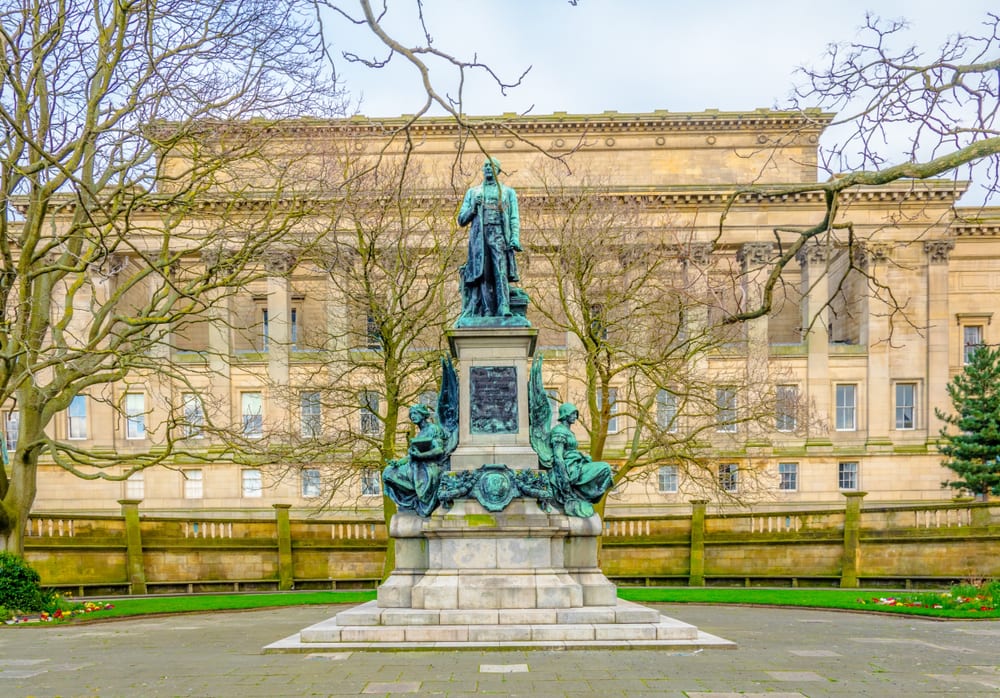
Liberal politician William Ewart Gladstone was a Liverpool-born politician during the Victorian era.
The only person to become Prime Minister four times during a twelve year period, and Chancellor of the Exchequer four times, the statue in St John’s Garden is bronze, made by Thomas Brock and erected in 1904.
The Earl of Beaconsfield – St George’s Plateau
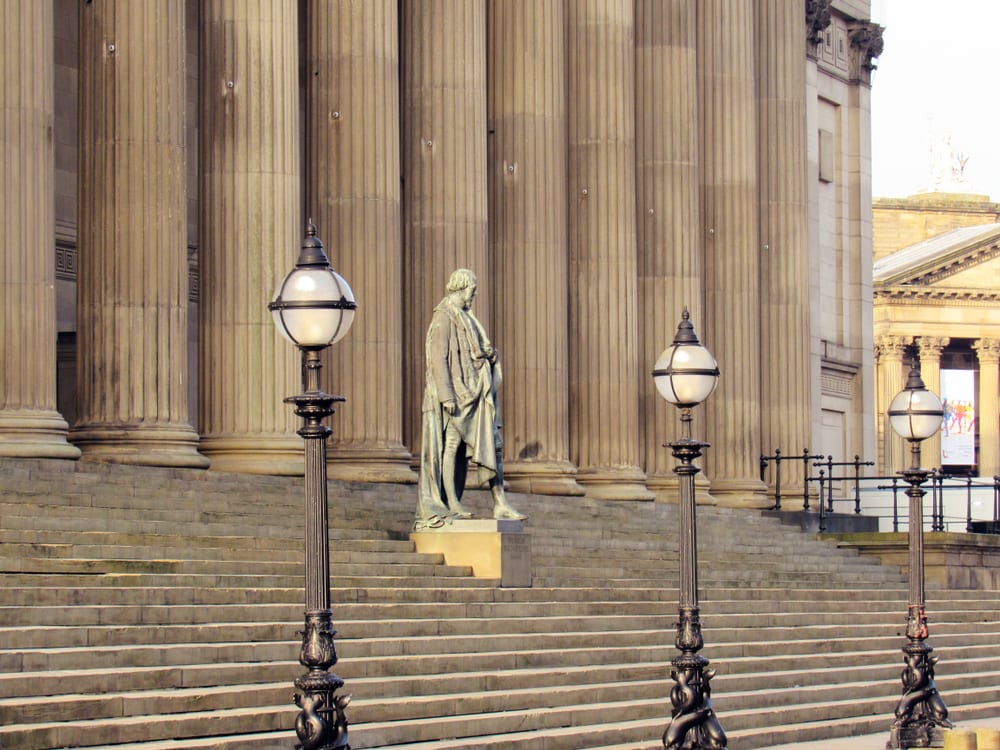
MP and novelist Benjamin Disraeli, Earl of Beaconsfield, depicted by Charles Bell Birch, served as UK Conservative Prime Minister and was highly influential in the development of the contemporary Tory party.
Disraeli was a prominent figure of Victorian Britain known for his dress sense and way with words, his political novels and career became fascinating to the public.
Major General William Earle CB – St George’s Plateau
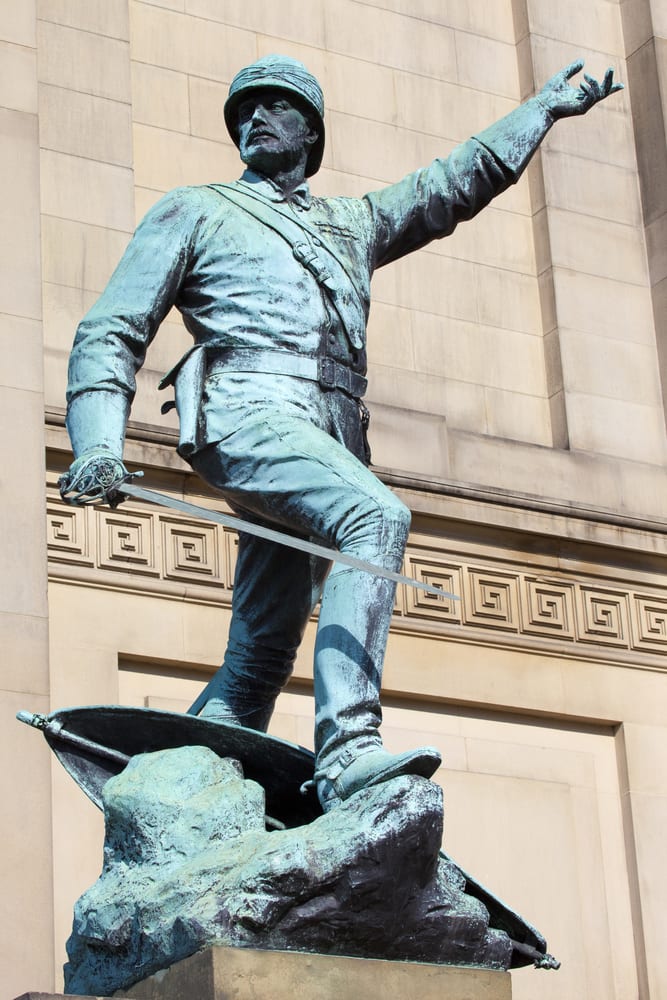
Born in Liverpool, honoured Army commander, Major General William Earle fought in the Crimean War and as part of the Egyptian Nile Expedition. Following his death in Sudan in 1885 a public meeting was held, presided over by the Mayor of Liverpool were a unanimous decision was made to commission a statue in a prominent position.
Charles Bell Birch’s bronze creation shows Major General Earle in action, leading his troops into battle, brandishing a sword.
Brian Epstein – Whitechapel
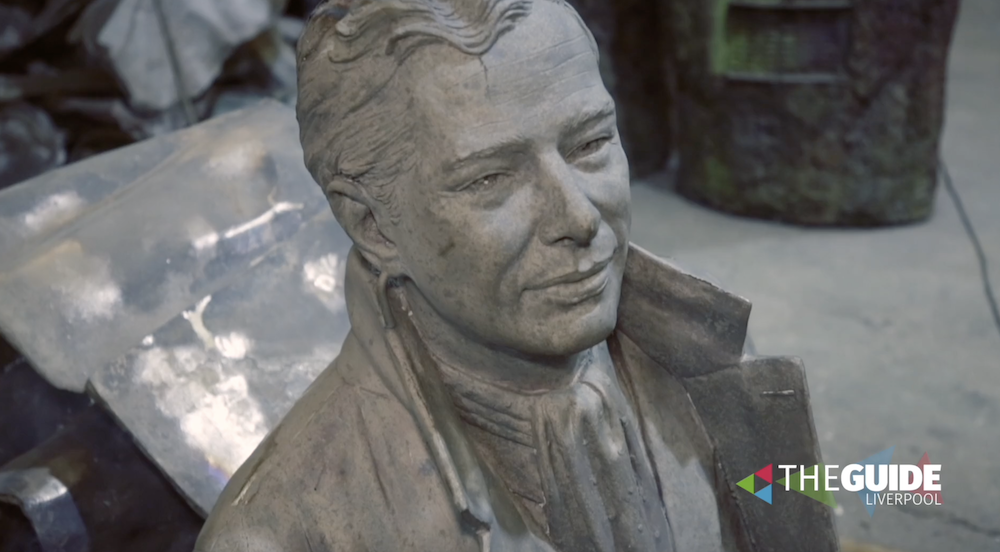
This statue stands at the corner of Button Street and Whitechapel, following the first steps of Epstein’s journey to change the fortunes of both the Fab Four and himself. His five-year deal with the Beatles saw them become more professional and guided them not simply to the top of the music charts but also into cultural history.


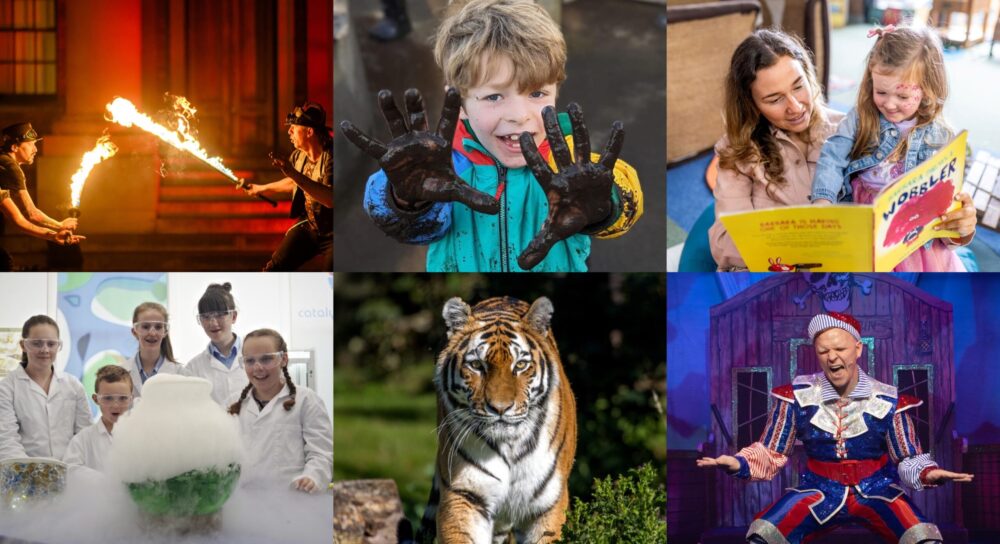

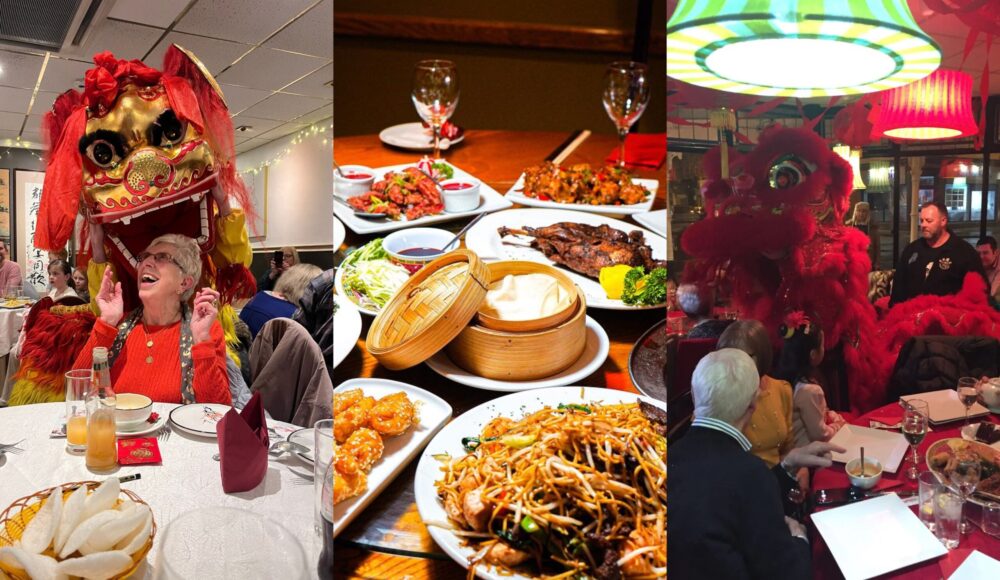

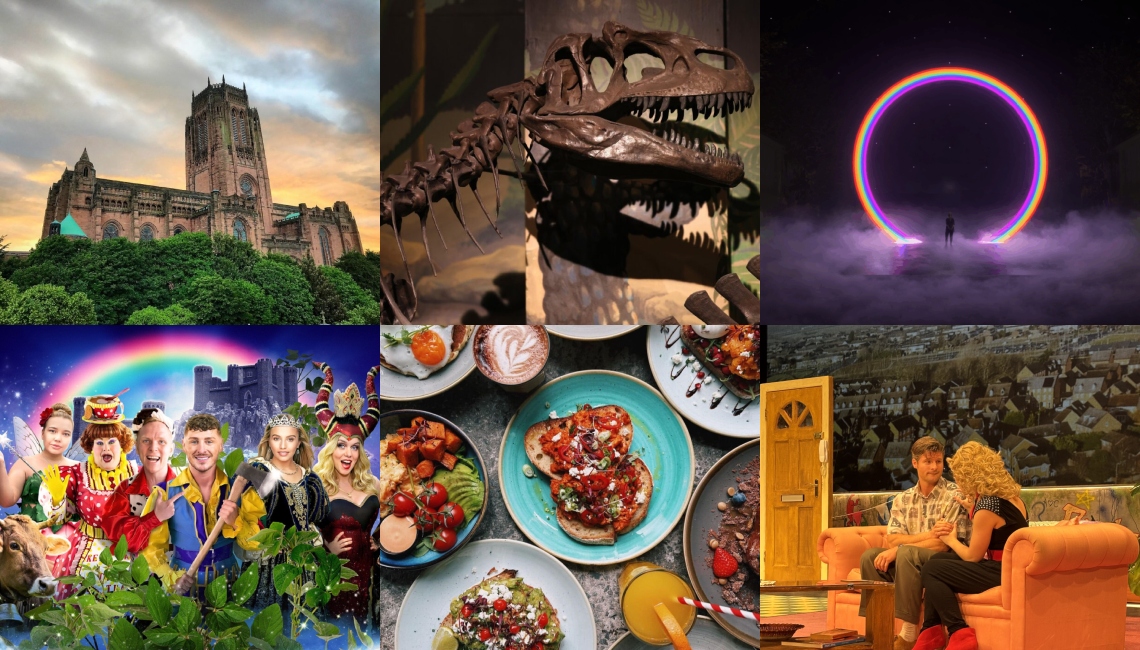


 Subscribe
Subscribe Follow Us
Follow Us Follow Us
Follow Us Follow Us
Follow Us Follow Us
Follow Us Follow Us
Follow Us











